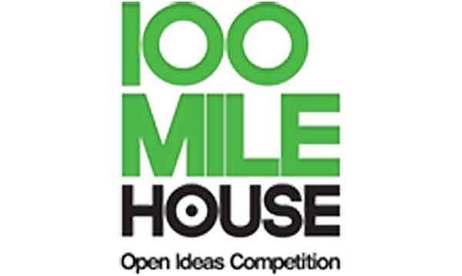Building a Local House with the 100 Mile Home Ideas Contest
Published Jun-25-12Breakthrough:
A global open innovation contest that took the 100-Mile Diet concept, and applied it to home building.
Company:
Architecture Foundation of British Columbia, Canada
The Story:
 If you want environmental, technical or economic issues tackled just call on the crowd for swift, innovative and cost effective solutions.
If you want environmental, technical or economic issues tackled just call on the crowd for swift, innovative and cost effective solutions.The crowd is used to solve a large variety of challenges which has included a number of intriguing housing problems.
For example, the $300 house contest which sought cheap and safe housing for the world’s poor - create a well-designed and safe house for a family, for under $300 - and LifeEdited, the open innovation competition to design a 420 square foot environmentally friendly apartment for Graham Hill, the founder of environmental website TreeHugger.com.
100 Mile House Ideas
Another fascinating housing initiative was the 100 Mile House Ideas Competition which sought ideas for a home for four that should be under 1,200 square feet and constructed from materials or systems manufactured or recycled from within 100 miles of the City of Vancouver, BC.
As the competition website pointed out, historically most homes were constructed as ‘100 mile’ houses with locally sourced materials – just think of stone houses, log cabins and cave homes. But what the competition organisers wanted to know was if this is was still possible and suitable in the 21st century with such a modern city as Vancouver.
Challenges
As Vancouver has mountains to the north and the east and water to the west this presented a number of difficult challenges.
And unusually for a crowdsourcing competition the judging criteria was vague so as to get the largest possible spectrum of ideas; the judges didn’t want to place any constraints on thinking. The panel consisted of renowned architects and sustainable design experts.
Submissions
During the three month submission period 57 entrants from 17 countries put forward their ideas. As well the motivation of creating something unique the crowd was incentivized with a prize purse of $10,000.
Meet the Winners
The overall winner was Tony Osborn from Vancouver who was given a check for $5,000 for his ‘Myco Home’. The idea is to turn waste material into building blocks by colonizing recycled wood fibre with mushroom mycelium to produce fire-resistant, mold-resistant building blocks.
The blocks are similar to ICFs (insulated concrete forms) that are used in the building industry today, and according to Osborn are as easy to assemble as Lego. In addition, each manufacturing cycle delivers two edible mushroom crops.
The second prize and a check for $2,500 went to Alex Pearson from Dundee, Scotland for his ‘Zero E Home’. The concept uses active and passive environmental technologies to achieve net zero energy use, and can be constructed from materials sourced locally from within a 100 mile radius of Vancouver’s city centre.
And the third prize and a check for $1000 was awarded to won Jin Park from New York for an affordable, sustainable energy efficient home that can be made with locally manufactured concrete masonry block, reclaimed Douglas-fir wood slats and use such sustainable strategies as passive cooling, geothermal heating, solar panels and a green roof.
The competition also recognized an innovation award and a student prize.
Next Story »

